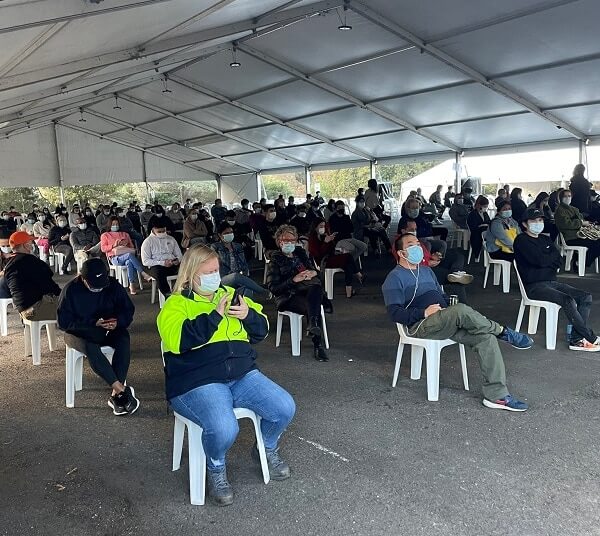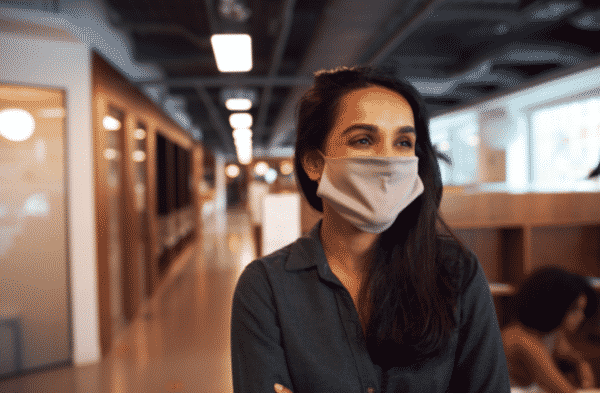Can my employer force me to get vaccinated?
The simple answer is no. The more realistic answer is, it depends. An employer cannot force you to have a COVID-19 vaccine. The Federal Government’s policy is that vaccines are voluntary and free, but the Prime Minister has announced that it is up to employers to determine whether vaccines should be compulsory. So, depending on your employment circumstances, or where you live, your employer may have the right to ask to get vaccinated.
They may be compulsory if your state has public health orders in place that required you to be vaccinated if you are employed in an industry such as aged care, construction, or healthcare.
Some companies like Qantas airlines have said that they will require employees to be vaccinated before they can commence work.

Anti-discrimination laws in Australia protect people with certain attributes from being treated less favourably, including health and physical attributes. If you have an existing illness, injury or condition that prevents you from taking the vaccine, and the employer nevertheless insists that you be vaccinated, this conduct may be discriminatory against you. If this is the case, the employer must provide alternative working arrangements to enable the employee to continue working such as working from home or make other adjustments at the workplace.
If your employer decides on a mandatory vaccination requirement for its employees, it must talk to its employees about it first, about the employee’s circumstances and the particular conditions at their workplace. An employer’s failure to do may be a breach of health and safety laws.
If an employee decides not to comply with an employer’s reasonable and lawful direction, it may result in jeopardising their employment. You may want to talk to a trusted colleague, your union or a lawyer when considering this option to obtain some further advice.
What are my rights if I need to take time off to get the jab? What if I feel unwell after?
Every full time and part time employee in Australia, other than casual workers, are entitled to personal leave (up to 10 days every year) if they are sick or unwell. However, this entitlement is not available to go get the vaccination.
Some workplaces are offering 2 hours paid leave to get the vaccination. Other employers are offering different start and finish time to facilitate you taking time to get the vaccine. You should speak with your employer about what entitlements are available to you.
If you have already received the vaccination, check with your employer if you are entitled to have leave for the relevant period.
READ ALSO: Vaccine selfies show people doing civic duty and encouraging the community

If you feel unwell afterwards and cannot attend work, you are entitled to take a day off as personal leave or sick day. If you require a medical certificate then remember that you can ask a pharmacist to issue you with one, although there may be a charge for one. If you have run out of personal leave then speak to your employer as they may make special arrangements for extra sick leave for aftereffects of the vaccine.
If I have a medical contraindication to take the vaccine, what do I have to tell my employer? To what degree must my employer be kept in the loop regarding a personal situation?
Any medical information about you and the medical reasons as to why you cannot take the vaccine are generally considered to be sensitive information and protected under the Privacy Act 1998.
Medical information is private information and does not need to be given to an employer, unless you choose to do so. Employers are not simply entitled to demand that information from you, nor can they pressure you to provide the information. They must ask your consent. They must tell you the purpose of collecting the information, what may happen if you do not provide the information, under what authority they are seeking the information, and show that material will be retained by the employer. All these factors are necessary to ensure you are providing informed consent about the whether you should hand over the information.
In some cases, your contract of employment or the enterprise agreement at your workplace may have certain requirements that permit the employer to ask you for this information. You should check these before providing any personal details to the employer.
If there are public health orders in place that require employees to be vaccinated before they can work, employers can ask you for evidence as to why you have an exemption. A medical certificate that states the reason for the medical contraindication is usually sufficient. The medical certificate does not need to go into lots of detail.
Further information about the rights to privacy and your medical information can be found at the Office of the Australian Information Commissioner. You are also entitled to raise a complaint with this body if you wish to complain about the mishandling of your private information.

Can I refuse to work with unvaccinated people?
It is unlikely that a worker can refuse to attend the workplace because a co-worker is unvaccinated unless the vaccination is mandatory under law, such as in a public health order.
However, your employer has a duty under work health and safety laws in each state to eliminate the risk to the health and safety of workers they employ, as practically as possible. This means that employers must ensure that there are sufficient measures in place at the workplace keep you and other workers safe.
If you feel unsafe at work, you have the right to cease work for your own health and safety and those of other workers. This is an entitlement under the workplace health and safety acts in each state. To do this, the worker must immediately inform their supervisor that they have decided to do so and be available to do another alternative task they are trained and able to do.
An employer cannot discriminate or take negative action against you for raising work health and safety concerns in your workplace. Although this is the law, it may sometimes be hard to take that stand, particularly if you work in a place where you may lose your job for raising a complaint.
What if I am vaccinated but live with unvaccinated people? Will that affect my position?
Even if you are vaccinated, you can transmit the virus to others at your workplace if your house mates are unvaccinated and infectious. Whether you disclose this information will depend on the legal requirements that may apply to your employment and how much you are required to disclose. If you are engaged in the health care sector, your requirement to disclose this may be a part of your duties to the employer to control and manage the risk of infection. If you are employed in warehousing or the IT sector, this may not be required.
If I am waiting for a vaccine that hasn’t been introduced in Australia, what are my options?
All the vaccinations have the same level of approval from the Therapeutic Goods Administration (TGA), the body responsible for the approval of medicines in Australia. If your employer requires all employees to vaccinated by a particular date, you may need medical evidence as to why a vaccine other than currently available is the better option for you. Where there are no compulsory vaccinations, you should approach the employer and explain your preference and why you are choosing to wait.
READ ALSO: Home vaccination program for people who are housebound

I’m about to go for a job interview. Will I be asked if I’m vaccinated? Can I ask if employees at the company are vaccinated?
Depending on the type of job that you are applying for, an employer may have the right to ask whether you have been vaccinated for example, a sector that requires vaccinations such as airlines. If you are asked the question, you have the right to ask why they need to know this information.
For these reasons, the company may also not tell you if specific people working with you have been vaccinated, but can tell you if there is a policy at the workplace that all employees are vaccinated.
Will I be unemployed if I can’t get the vaccine for health reasons and vaccination is mandatory in all professions?
There isn’t a yes or no answer to this question. If you have a health condition that does not permit you to have the vaccination, you may be protected by anti-discrimination laws. Refusing you the opportunity to perform a role or be considered for employment may be grounds for discrimination against you. In these circumstances, you should either approach your union or speak to solicitors to provide you with more specific advice.
What constitutes a religious objection to the vaccine and how can this exemption be proven?
There are very limited grounds on which to do this and would require, at the very least, specific restrictions and official statements issued by religious leaders that the vaccine is prohibited in their religion.
Further, the religion will also have to be a registered established religion to warrant this consideration. Australian courts have traditionally been reluctant to make findings such as these and it would be determined on a case-by-case basis.
Protection against discrimination on the basis of religious grounds are available in the ACT, NT, Queensland, Tasmania, Victoria, and Western Australia. The circumstances of each case will determine whether there is any protection available in the courts.

What agencies and service organizations are available for further information about these matters?
The Fair Work Ombudsman is the government agency responsible for advice on and enforcement of workplace laws in Australia. Their advice on employment rights and COVID-19 can be found here. You can make complaints about your workplaces breaching workplace laws at this office.
Safework Australia is the government body responsible for developing national policy on worker’s health and safety and worker’s compensation. Their advice and guidelines on COVID-19 and the safe working conditions for working with COVID -19 can be found here. Further information on the national rollout of the vaccine and how it interacts with worker’s health and safety can be found here.
The Australian Human Rights Commission is the government body that investigates complaints about discrimination and human rights breaches. Their information about the COVID-19 vaccine and discrimination law can be found here.
The Office of the Australian Information Commissioner is the government agency established to regulate privacy rights of all Australians. Information about your rights to privacy and the COVID-19 vaccines can be found here.
The Department of Health develops and delivers the policies on health in Australia. Their guidance on the COVID-19 vaccines can be found here.
Unions are a fee- based membership organisation for employees and cover all industries including banking, IT, mechanical trades, and nursing. They work to represent you and provide assistance with wages and entitlements, unfair treatment at work, or work-related injuries or illness. Every worker in Australia has a right to join a union. As part of the membership, they can offer you legal advice and assistance for free. You can find out more about Unions at the Australian Council of Trade Unions here.
The information provided here is for general guidance only and should not be considered to be legal advice.
READ ALSO: #MissionJab: our ‘Jab Song’ has gone viral!
Link up with us!
Indian Link News website: Save our website as a bookmark
Indian Link E-Newsletter: Subscribe to our weekly e-newsletter
Indian Link Newspaper: Click here to read our e-paper
Indian Link app: Download our app from Apple’s App Store or Google Play and subscribe to the alerts
Facebook: facebook.com/IndianLinkAustralia/
Twitter: @indian_link
Instagram: @indianlink
LinkedIn: linkedin.com/IndianLinkMediaGroup





